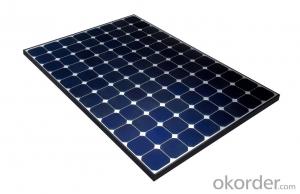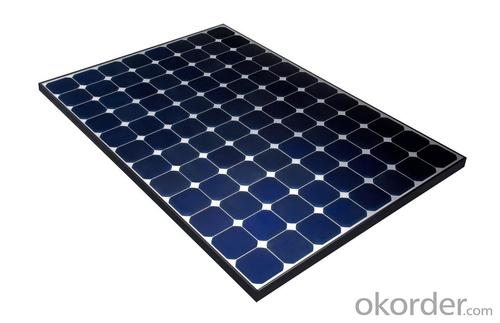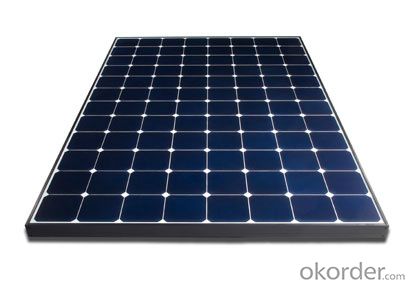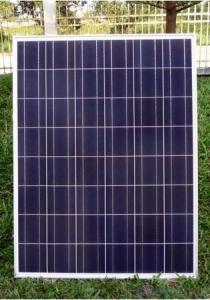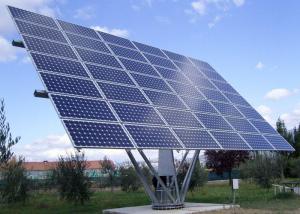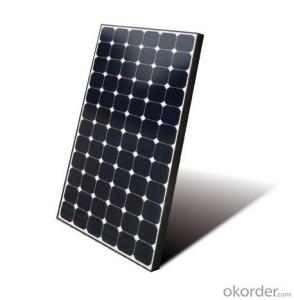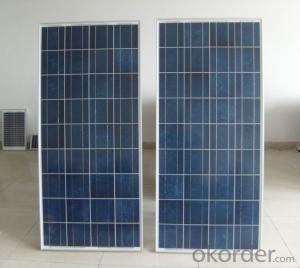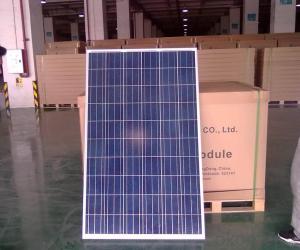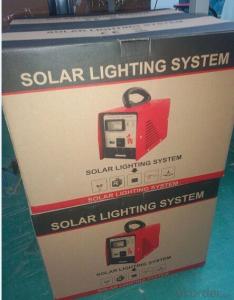80w Solar Energy Systems Blaine - Approved by TUV UL CE
- Loading Port:
- Shanghai
- Payment Terms:
- TT OR LC
- Min Order Qty:
- 1 pc
- Supply Capability:
- 100 pc/month
OKorder Service Pledge
OKorder Financial Service
You Might Also Like
Specification
80W Solar Home Solution Approved by TUV UL CE
Production description
PV array:
Convert sunlight instantly into DC electric power. Formed by the solar modules (also called photovoltaic
modules) in accordance with the system requirements for series and parallel.
Solar charge controller:
A charge controller may be used to power DC equipment with solar panels. The charge controller
provides a regulated DC output and stores excess energy in a battery as well as monitoring the battery
voltage to prevent over charge or over discharge. An inverter can be connected to the output of a charge
controller to drive AC loads.
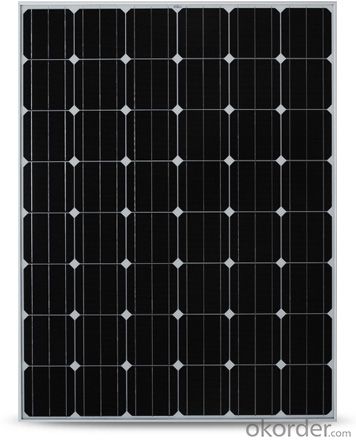
Feature
1.High conversion efficiencies resulting in superior power output performance.
2.Outstanding power output even in low light or high temperature conditions
3.Optimized design for ease of soldering and lamination
4.Long-term stability,reliability and performance
5.Low breakage rate
6.Color uniformaity
Physical characteristic
1. Rigorous quality control meets the highest international standards.
2. High-transmissivity low-iron tempered glass, strong aluminium frame.
3. Using UV-resistant silicon.
4. IS09001/14001/CE/TUV/UL
- Q: How do solar energy systems impact utility bills?
- Solar energy systems can have a significant impact on utility bills by reducing or even eliminating the need for grid-supplied electricity. By generating clean and renewable energy from the sun, these systems can significantly lower electricity costs over time, as homeowners or businesses can rely on the power generated by their solar panels instead of purchasing electricity from the utility company. Additionally, excess solar energy can be fed back into the grid, allowing users to earn credits or receive compensation, further reducing their utility bills.
- Q: What is the cost of installing a solar energy system?
- The cost of installing a solar energy system can vary depending on various factors such as the size of the system, location, and specific requirements. On average, the cost can range from $10,000 to $30,000 or more. However, there are also various incentives, tax credits, and financing options available that can help offset the initial cost. It is recommended to consult a solar energy provider or contractor to get an accurate estimate based on your specific needs and circumstances.
- Q: How do solar energy systems impact energy security?
- Solar energy systems can greatly enhance energy security by diversifying the energy mix and reducing dependence on traditional fossil fuels. They provide a decentralized and sustainable source of energy, reducing the vulnerability to disruptions in the supply chain and geopolitical tensions. Furthermore, solar energy systems contribute to grid stability and resilience, as they often include energy storage capabilities.
- Q: Can solar energy systems be used in areas with limited access to solar energy education programs?
- Yes, solar energy systems can be used in areas with limited access to solar energy education programs. While education programs can certainly enhance understanding and maintenance of solar energy systems, they are not essential for their installation or operation. With the help of technicians or experts who have knowledge and experience in solar energy, these systems can still be successfully implemented and utilized in areas without extensive education programs. Additionally, online resources and self-study materials can provide valuable information and guidance for individuals in such areas, enabling them to make the most of solar energy systems.
- Q: What is the role of batteries in solar energy systems?
- The role of batteries in solar energy systems is to store excess energy generated by the solar panels during the daytime for use during nighttime or periods of low sunlight.
- Q: How does the angle of incidence affect the performance of solar panels?
- The angle of incidence significantly affects the performance of solar panels. When the angle of incidence is perpendicular to the sun's rays (90 degrees), the panels receive the maximum amount of solar energy, resulting in the highest efficiency. As the angle deviates from perpendicular, the amount of energy captured decreases, leading to reduced performance. Therefore, adjusting the angle of solar panels to match the sun's position throughout the day optimizes their efficiency and overall performance.
- Q: Can solar energy systems be used in areas with strict environmental regulations?
- Yes, solar energy systems can be used in areas with strict environmental regulations. In fact, solar energy is often encouraged in such areas as it is a clean and renewable source of energy that helps reduce carbon emissions and dependence on fossil fuels. Installing solar panels and utilizing solar power can help meet environmental regulations and sustainability goals by providing a reliable and environmentally-friendly energy solution.
- Q: How do solar energy systems contribute to reducing greenhouse gas emissions?
- Solar energy systems contribute to reducing greenhouse gas emissions in several ways. Firstly, they generate electricity without burning fossil fuels, which are the primary source of greenhouse gas emissions. By relying on the sun's energy, solar systems eliminate the need for power plants that release carbon dioxide and other pollutants. Secondly, solar energy reduces the demand for traditional electricity generation, which often relies on fossil fuels. As solar power becomes more widespread, the overall carbon footprint of the energy sector decreases. Lastly, solar energy systems can be integrated into buildings, reducing the need for energy transportation and transmission, which further minimizes greenhouse gas emissions. Overall, solar energy systems play a crucial role in transitioning to a cleaner and more sustainable energy future, helping to combat climate change and reduce greenhouse gas emissions.
- Q: Can a solar energy system be used in areas with high levels of pollution from industrial activities?
- Yes, a solar energy system can still be used in areas with high levels of pollution from industrial activities. While pollution can reduce the efficiency of solar panels over time due to dust and particulate matter accumulating on the surface, regular cleaning and maintenance can mitigate these effects. Additionally, advancements in solar technology have made panels more resilient to pollution, allowing them to still generate electricity even in polluted environments. Nonetheless, it is important to note that reducing pollution and transitioning to cleaner sources of energy is crucial for long-term sustainability and environmental health.
- Q: Can solar energy systems be used in areas with limited access to skilled labor?
- Yes, solar energy systems can be used in areas with limited access to skilled labor. Solar energy systems are designed to be user-friendly and require minimal maintenance. Additionally, advancements in technology have simplified the installation process, making it easier for individuals with limited technical expertise to set up and operate solar energy systems. In such areas, training programs and workshops can also be organized to empower local communities and develop their skills to maintain and repair solar energy systems.
Send your message to us
80w Solar Energy Systems Blaine - Approved by TUV UL CE
- Loading Port:
- Shanghai
- Payment Terms:
- TT OR LC
- Min Order Qty:
- 1 pc
- Supply Capability:
- 100 pc/month
OKorder Service Pledge
OKorder Financial Service
Similar products
Hot products
Hot Searches
Related keywords
